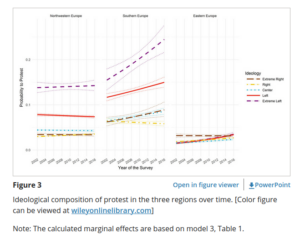Prediction: Good dating sites of the future will use genomic data to select partners with matching MHC. The idea is obvious. Genomic sequencing prices will fall. People will have copies of their data. These can be uploaded to dating sites. Dating sites can extract the info about MHC (and whatever else!) from the data, and match people accordingly. Perhaps people will extract the MHC part of the genome and only upload that, to avoid giving more information than necessary. Altho other info can be used to match as well.
https://en.wikipedia.org/wiki/Major_Histocompatibility_Complex_and_Sexual_Selection#MHC_and_Sexual_Selection
MHC-based sexual selection is known to involve olfactory mechanisms in such vertebrate taxa as fish, mice, humans, primates, birds, and reptiles.[6] At its simplest level, humans have long been acquainted with the sense of olfaction for its use in determining the pleasantness or the unpleasantness of one’s resources, food, etc. At a deeper level, it has been predicted that olfaction serves to personally identify individuals based upon the genes of the MHC.[9]
…
Other studies have approached mate choice based on odor preference. In one study done by Wedekind et al., women were asked to smell male axillary odors collected on T-shirts worn by different males. Women that were ovulating rated the odors of MHC-dissimilar men as more pleasant than those of the MHC-similar men. Furthermore, odors of MHC-dissimilar men often reminded women of current or former partners, suggesting that odor—specifically odor for MHC-dissimilarity—plays a role in mate choice.[12]
In another study done by Wedekind et al., 121 women and men were asked to rank the pleasantness of the odors of sweaty T-shirts. Upon smelling the shirts, it was found that men and women who were reminded of their own mate or ex-mate had dramatically fewer MHC alleles in common with the wearer than would be expected by chance. If the selection for shirts was not random, and actually selected for MHC-dissimilar alleles, this suggests that MHC genetic composition does influence mate choice. Furthermore, when the degree of similarity between the wearer and the smeller was statistically accounted for, there was no longer a significant influence of MHC on odor preference. The results show that MHC similarity or dissimilarity certainly plays a role in mate choice. Specifically, MHC-disassortative mate choice and less similar MHC combinations are selected for.[13] One interesting aspect of the Wedekind’s experiment was that in contrast to normally cycling women, women taking oral contraceptives preferred odors of MHC-similar men. This would suggest that the pill may interfere with the adaptive preference for dissimilarity.[12][13]
